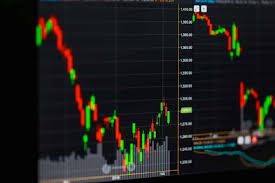
How to Start Forex Trading: A Step-by-Step Guide
Forex trading offers incredible opportunities for individuals looking to invest and diversify their portfolios. However, entering this dynamic market can be daunting for beginners. This guide will walk you through the essential steps to kickstart your Forex trading journey, ensuring you have the knowledge, tools, and strategies needed to succeed. Along the way, we’ll highlight critical resources, including how to start forex trading Forex Brokers in Argentina, to assist you in your trading endeavors.
Understanding Forex Trading
Forex, or foreign exchange, is the largest financial market in the world, where currencies are traded against one another. The aim of Forex trading is to profit from the fluctuations in currency prices. Unlike stocks, the Forex market operates 24 hours a day, five days a week, offering flexibility and opportunities across different time zones.
1. Educate Yourself
The first step in starting Forex trading is educating yourself about the market. Familiarize yourself with the following fundamental concepts:
- Currency Pairs: Currencies are traded in pairs (e.g., EUR/USD, GBP/JPY). The first currency is the base currency, and the second is the quote currency.
- Pips: A pip is the smallest price move in the Forex market, typically measured in the fourth decimal place.
- Leverage: Leverage allows traders to control a larger position with a smaller amount of capital, which can amplify both profits and losses.
- Margin: Margin is the amount of money required to open and maintain a leveraged position.
- Technical vs. Fundamental Analysis: Understanding how to analyze market movements can help in making informed trading decisions.
2. Choose a Reliable Forex Broker
Your choice of a Forex broker can significantly impact your trading journey. It’s crucial to select a reputable broker that aligns with your trading strategy and requirements. Consider the following factors:
- Regulation: Ensure the broker is regulated by a recognized financial authority to guarantee the safety of your funds.
- Trading Platforms: Investigate the platforms offered by the broker. Popular platforms include MetaTrader 4 and MetaTrader 5.
- Spreads and Fees: Look for brokers with competitive spreads and transparent fee structures.
- Customer Support: Reliable customer service is vital for resolving issues quickly.
- Account Types: Choose a broker that offers a variety of account types, including demo accounts for practice.

3. Practice with a Demo Account
Before risking your capital, use a demo account to practice trading. Most brokers provide demo accounts that simulate real market conditions. This is an invaluable tool for:
- Understanding how the trading platform works.
- Testing different trading strategies without financial risk.
- Gaining confidence in executing trades.
4. Develop a Trading Plan
A solid trading plan is essential for success in Forex trading. Your plan should include:
- Trading Goals: Define what you want to achieve, whether it’s short-term gains or long-term wealth accumulation.
- Risk Management: Determine how much capital you are willing to risk on each trade. A common guideline is to never risk more than 1-2% of your trading capital on a single trade.
- Entry and Exit Strategies: Specify the criteria that will trigger your entry and exit points when trading.
- Performance Review: Regularly assess your trading performance to identify areas for improvement.
5. Start Trading
Once you feel confident in your knowledge, broker choice, and trading plan, you can start trading with real money. Begin with a small amount of capital to minimize risk as you transition from a demo account to live trading. Pay attention to market news and events that could impact currency prices.
6. Stay Updated and Continue Learning
The Forex market is always evolving, and staying updated with global economic news and trends is crucial. Follow financial news sites, join trading communities, and continue to educate yourself through books and online courses. Continuous improvement will help you adapt to changing market dynamics and refine your trading strategy.
Conclusion
Starting Forex trading can be an exciting and potentially profitable venture. By educating yourself, choosing a reliable broker, practicing with a demo account, and developing a robust trading plan, you can navigate the challenges of the Forex market. Remember that trading involves risk, and it’s essential to manage that risk wisely while striving to achieve your financial goals. Good luck on your Forex trading journey!
